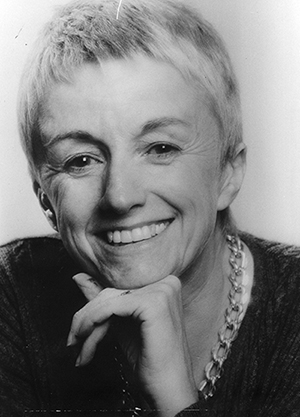1 From patterns to processes
Doreen Massey, who worked at The Open University for many years, and who died a few months before the referendum, was a geographer and social thinker who spent much of her life probing below the surface. She recognised the importance of patterns but always wanted know why they emerged and how they reproduced themselves over time. The title of one book she wrote captured this in the idea of the Spatial Divisions of Labour (1995). Doreen thought ‘relationally’. She was always seeking to identify political and economic relations as they found an expression in maps like those considered in Week 1, as well as in the lived experience of people in particular places.

Activity 1 Understanding the geographies of uneven development
The following audio was recorded at a conference focused on Doreen Massey’s work. In response to comments made by other participants, she explains how she understands the power relations reflected in the UK’s social and political geography.
Play the audio and try to identify the key points Doreen Massey makes. In some ways, what Doreen has to say is deceptively simple, but it repays careful listening. (You may like to make notes in the box below.) Questions to bear in mind while considering the points she makes include:
- What is the ‘regional’ problem and how should it be understood?
- Why is it not enough simply to map the economic and social differences between areas of the UK?
- Can prosperity in one place be understood without recognising its relationship to poverty in another?
Click here for transcript [Tip: hold Ctrl and click a link to open it in a new tab. (Hide tip)]
Feedback
Doreen Massey captures two very important points in this very brief argument.
First, she says that it is possible to identify significant differences in economic well-being and development between the regions (she might have added nations) of the UK. There is a long history of government policy (stretching back to the 1930s) which focuses attention on what have sometimes been identified as the distressed regions or declining regions. There has apparently always been a ‘regional’ problem. And, of course, the implication is generally that the problem belongs to those regions which are facing it. In a sense it is taken for granted that those living in such regions are somehow to blame, because they have low skills, because they have decaying infrastructure or old industrial plants, or because they are not prepared to move elsewhere to seek work, and so on.
Second, she questions any such simple interpretation, arguing instead that the outcomes we see (the managers being in London, the production workers in the north of England, the research workers in Berkshire and so on) have to be understood relationally. They cannot simply be presented on a map, however useful the mapping may be in highlighting patterns of difference that need to be explained. What matters is to identify the relations of power – the sets of social, political and economic relations – that help to generate forms of inequality and particular structures of difference.
Doreen Massey sets out to chart and identify a process of uneven development. Not only are there differences, she suggests, but they reflect a wider dynamic of uneven development, in which it is the process that matters, not just the outcome.
